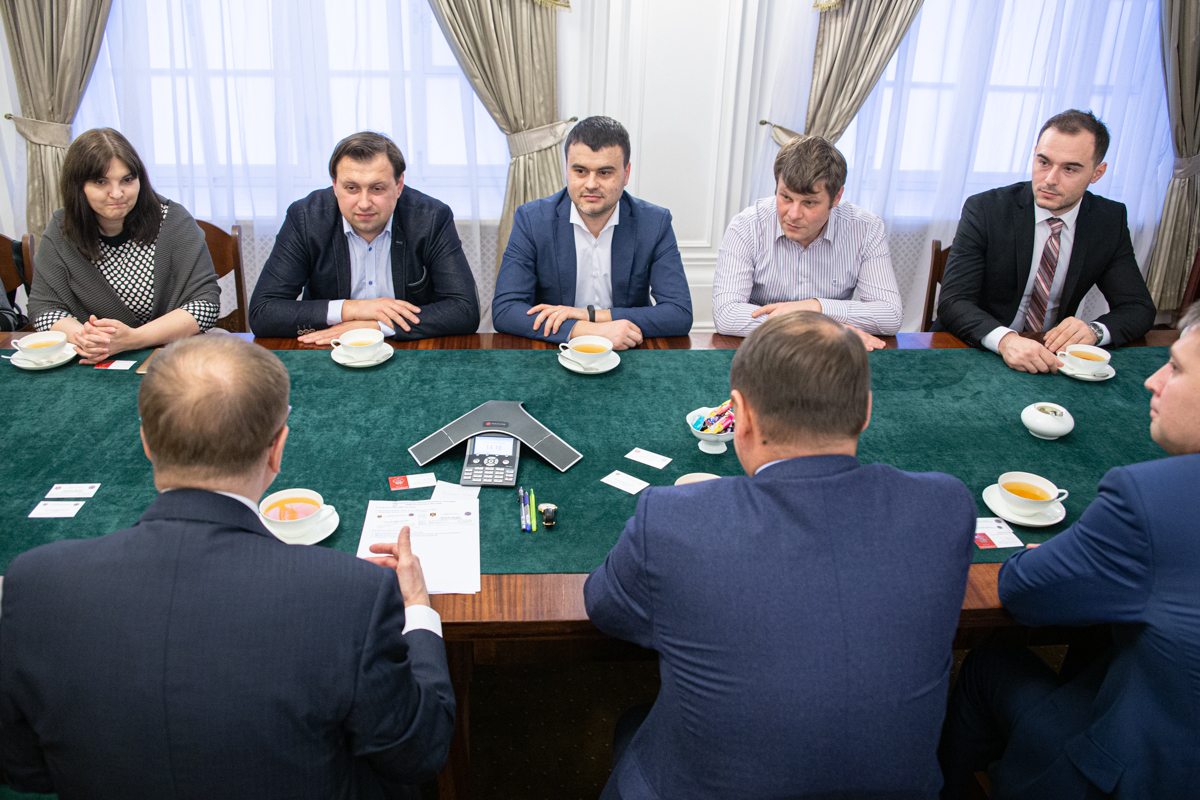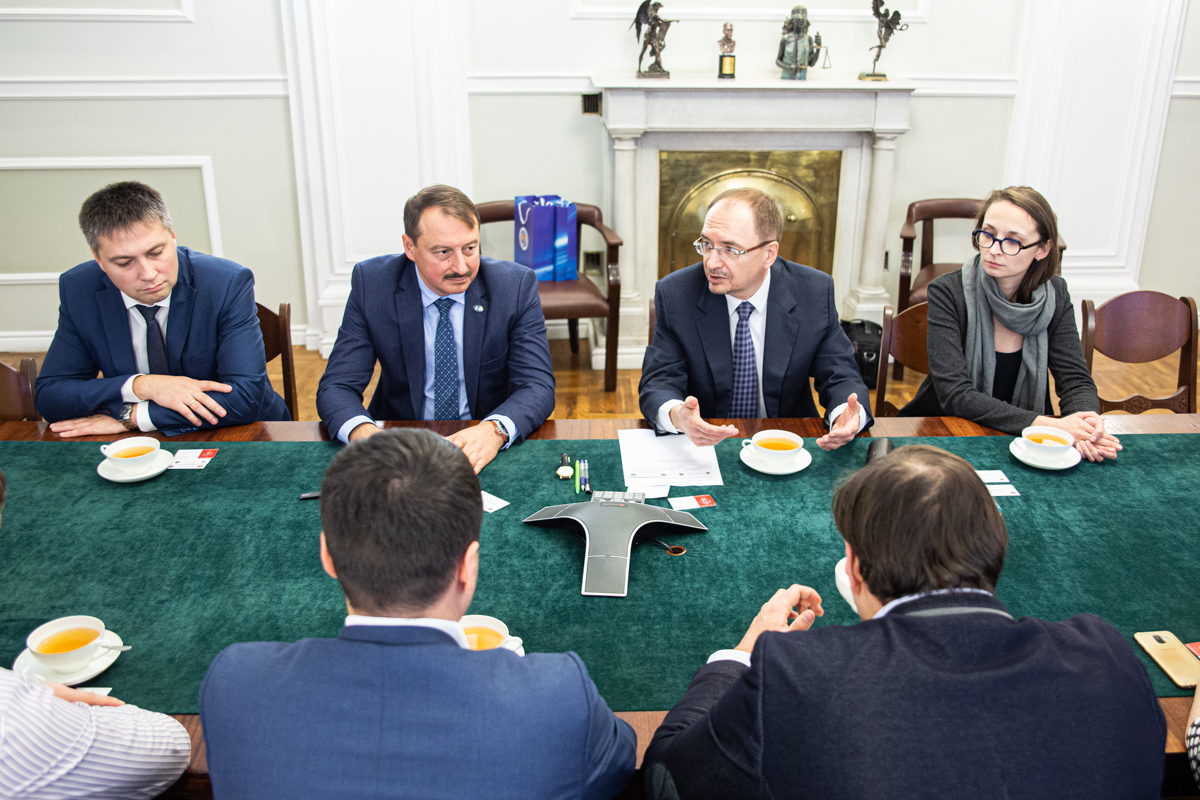Transparent elections: Moldovan Central Electoral Commission takes interest in St Petersburg University blockchain technology
A delegation from the Central Electoral Commission of the Republic of Moldova has visited St Petersburg University. The purpose of the visit was to learn about the University’s experience with introducing distributed ledger technology into an electoral process.
Maxim Lebedinschi, Secretary of the Moldovan CEC, noted that innovative technologies are increasingly being used to provide transparency in elections, which is an absolute priority for the electoral commission. He said that in the recent elections in Moldova, it had been decided to almost completely abandon the use of paper voter registers. To cast a vote for a candidate, it was sufficient for a person to come to the polling station, scan their passport and affix their signature to a tablet PC. Real-time voting results were automatically displayed on the CEC website. Nevertheless, the Commission encountered certain technical difficulties, and so, to improve the electoral process, representatives of Moldova’s CEC have come to St Petersburg University to acquaint themselves with the ELORIS blockchain system.
Transparency is essential in the electoral process, which is always in need of greater public confidence.
St Petersburg University Rector Nikolay Kropachev
He said that the provision of such transparency through blockchain technology not only makes it possible to conduct elections according to the highest standards but also ensures confidence in the electoral process among all participants. ‘Everyone must be given the opportunity to make sure that their vote has been properly tallied and that they have control over the electoral process,’ Mr Kropachev pointed out. ‘And this is where developments in blockchain technology can bail out electoral commissions.’
This year, specialists at the St Petersburg University Distributed Ledger Technologies Centre along with the Election Commission of the Leningrad Region developed a blockchain system that was successfully tested in the Leningrad Region municipal elections on 8 September 2019. In the format of a mobile application, it not only enables the chairpersons of the precinct election commissions to promptly report the voter turnout to higher election commissions, but it also completely rules out any possibilities of fraud in the voting process. The ELORIS system is functional and designed for work with observers. Its capabilities make it possible to record complaints and actively respond to them through the mobile application, to monitor events at all polling stations and to display on a built-in map the geolocation of events and the dynamics of voter turnout in real time. Authorised users of the system are able to file complaints and inquiries online. ELORIS makes it possible to analyse 12-hour video footage from polling stations in a few minutes; record illegal repeat voting, based on a one person, one ballot algorithm; and perform automated verification of the video analysis with the final report of the election commission.
In addition, ELORIS provides a means for identifying the author of anonymous complaints, which, in turn, makes it possible to react promptly to any signal of possible irregularities and to determine whether it is a genuine appeal or just a typical prank. The practicality of this system is particularly relevant, as there has been a recent surge in fake news during election campaigns. In one instance, according to the Election Commission of the Leningrad Region, during elections in the Leningrad Region in the autumn of 2019, an individual who had been registered as an observer at only one polling station filed five identical complaints of irregularities at other polling stations. Thanks to the system, which recorded the time and place that each of the documents had been submitted, their author was invited to the nearest polling station so that they could present their evidence of violations in person. When the veil of anonymity was lifted, they were forced to admit that there were no solid grounds for the complaints.
The Chairman of the Leningrad Region Election Commission, Mikhail Lebedinsky, stressed that ‘it is very important that all participants in an electoral process have an opportunity to determine when they are dealing with real signals of possible violations and when it is a hoax, the sole purpose of which is to mislead people and distract them from their real work’.
The Rector of St Petersburg University pointed out that the Leningrad Region Election Commission had ordered such a system of internal and external monitoring of elections and, as it was being developed, they became coauthors of the project. He made it clear that the University was open to cooperation with any country and was ready to work with the CEC of the Republic of Moldova.
Taking stock of the meeting, Mikhail Lebedinsky, the Chairman of the Leningrad Region Election Commission, noted that the organisers of the electoral processes in the Russian Federation and the Republic of Moldova faced similar problems, and he stressed that there was only one way to build trust: the basic procedures must be transparent to any voter.



